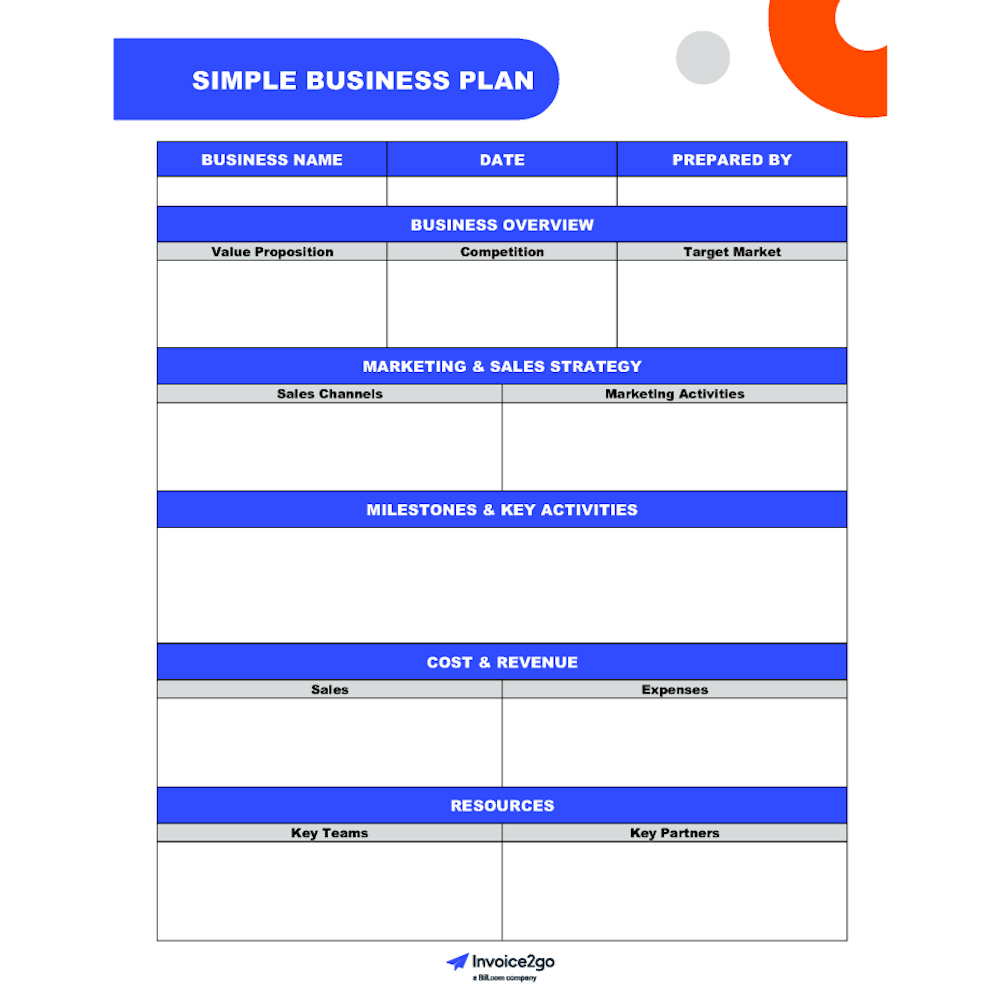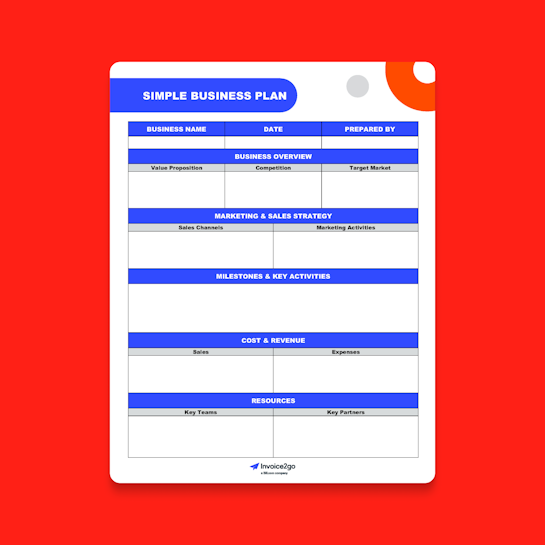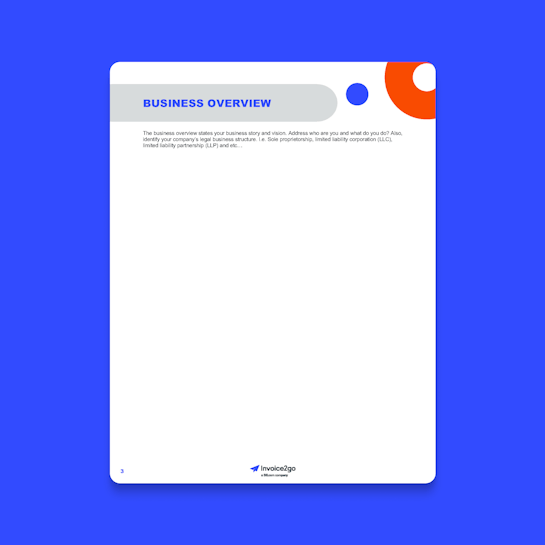Free Simple Business Plan Template
Get free access to our simple business plan template. Whether you’re a new business or have been around for years, this simple business plan template will help you manage your business through various stages of growth.

Download a simple business plan template
Solid business plans turn a business idea into actionable and well-defined goals. Get started with your business planning by using our free business plan templates.
What is a simple business plan?
A business plan is a written document that communicates the goals, strategies, and resources needed for small businesses. It guides through each stage of starting and managing a company, including the timeline, processes, finances, and methods to transform the business from an idea to something tangible.

What are the benefits of using simple business plan templates?
The ultimate benefit of using a template is to simplify the creation of your business plan. Here are reasons why a template simplifies the process:
- Ready-made layouts
- A variety of templates are available
- Saves time and valuable resources
- It’s free to download

What elements are on a simple business plan?
Business plans are the blueprint of your business. A business plan should highlight the company’s goals and how you will achieve those goals. Here are the key sections of any business plan:
- Executive summary
- Business overview
- Target market
- Industry or market and competition analysis
- Product or services description
- Ownership and management plan
- Sales and marketing plan
- Financial plan and projections
Simple business plan templates: the answers you need to get going
How do you write a business plan?
How do you write a business plan?
To write a good business plan, you need to carry out adequate market research and give attention to every step of preparing the business plan. Here are the basic steps to writing a good business plan.
- Executive summary: contains the business’s mission, vision, and short and long-term goals.
- Description of business: You define the realm, scope, and type of business you plan to venture into.
- Market analysis: contains solid evidence that you have clearly understood the marketplace, its gaps, and the kind of customers you will be serving.
- Competitive analysis: At this step, you need to determine who your competitors are and what they offer best, and then show how you plan to beat their products and make more sales.
- Description of organizational management: Describe the top managers and their roles in achieving the success of a business.
- Description of product or services: Define the type of product or service you wish to offer to the market and the resources required to produce the product or service.
- Marketing plan: Define the market strategy to help you access prospective customers and even make sales.
- Sales business strategy: Highlight the high-level objectives of your sales efforts and a clear cycle of making sales.
- Funding details: Clearly outline your projected sources of funds and how you wish to utilize the funds to achieve the overall goal of the business. You can also request funding at this step.
- Financial projections: approximate the returns you expect at the end of a specific trading period.
What is the difference between traditional versus simple business plans?
What is the difference between traditional versus simple business plans?
A traditional business plan is relatively long, covering all playland in finer details while expanding on both the short-term and long-term goals of the firm. While a simple business plan is brief and focuses only on the key aspects concisely and quickly to easily share with internal stakeholders.
How to format a simple business plan?
How to format a simple business plan?
Follow these steps to format an excellent simple business plan.
- Create a company description
- Define the purpose of your business
- Identify business partners
- Prepare a marketing plan
- Show whether and when you need to hire employees
- Compile all the financial information of your business in the right way.
- Gather all legal documents and insert them into the simple plan
- Prepare the simple plan for documentation
How long should a business plan be?
How long should a business plan be?
The length of a business plan wholly depends on what you intend to do with it. For a simple business plan, you can write anywhere from 1 up to 3 pages but ensure you cover all the essential and necessary aspects of the plan. A detailed business plan can be anywhere between 25 to 50 pages.

